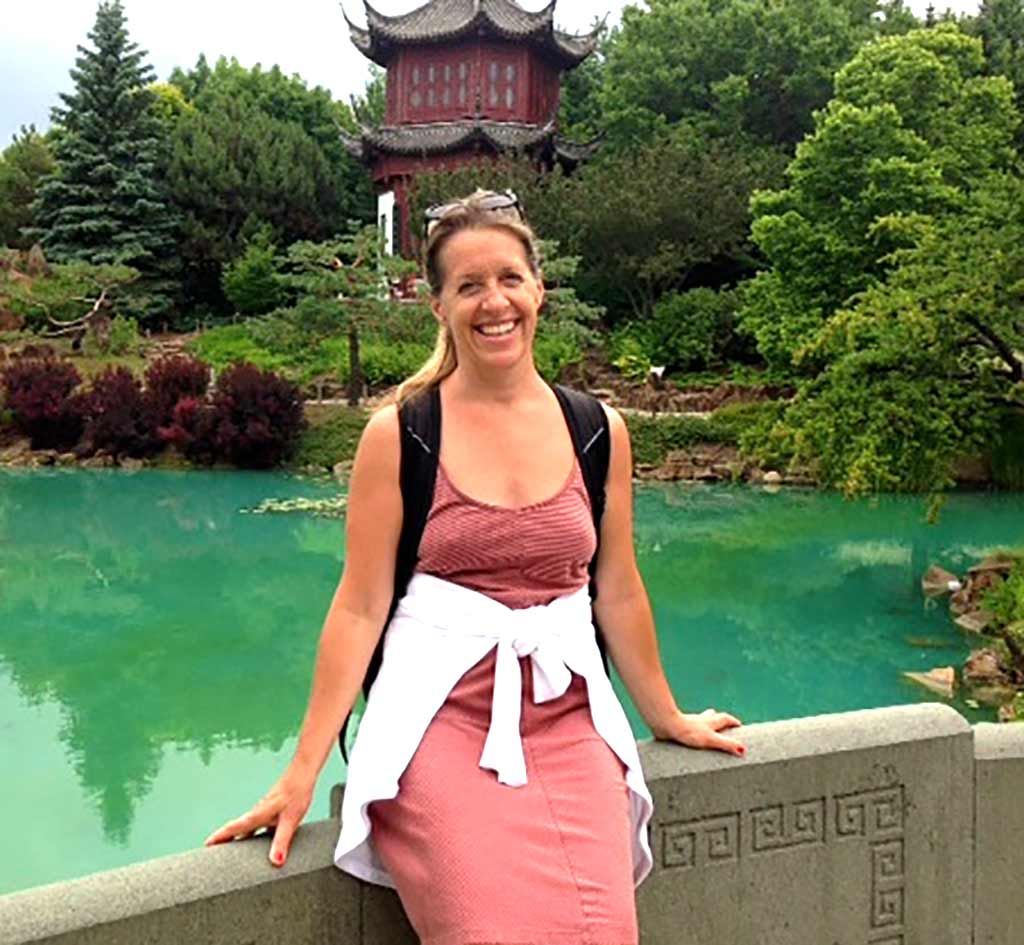
Person of the Week
Jennifer Hodgson
Producing Director, Actress, Musician, Co-Founder Everyman Repertory Theatre
That’s what theater was for me – finding my home. I found my niche. Theater gives me a venue for expression. There is a real feeling of energy and sharing.
1. What led you to the mission of a producing director, actress, and musician?
I was in high school I was at an audition for the play, “You Can’t Take It With You”. I got up on that stage and afterwards the teacher kept pulling me back up on the stage. I ended up getting the lead. I’m quite a shy person. I had never had any experience, but I got up on that stage and I felt like I was home. Theater gave me the opportunity to really express myself.
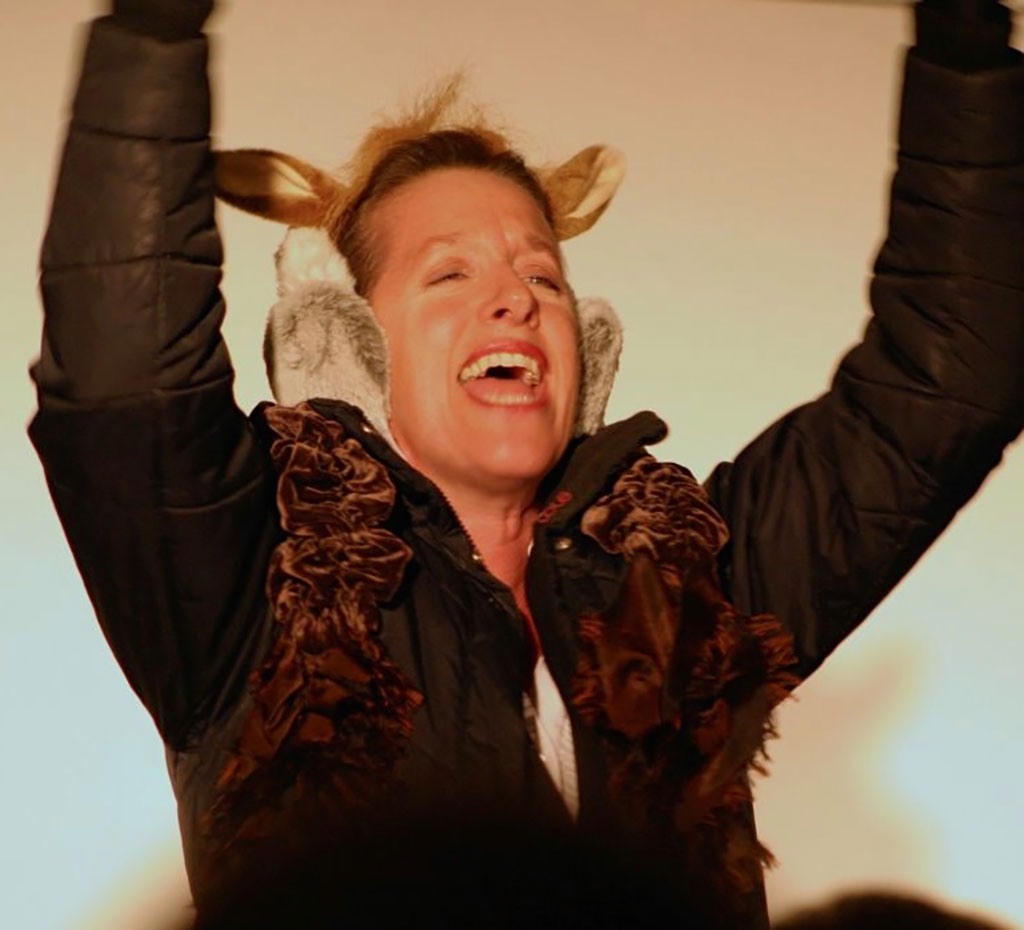 A lot of people feel less confident when they get up on stage. There’s a whole other group that feels completely the opposite. Sometimes being on stage for them is a whole lot easier than real life. So that’s what theater was for me – finding my home. Someone gave me a chance. When I did that part, I found it was something I took to and I was very good at. I had a very successful high school career. I found my niche.
A lot of people feel less confident when they get up on stage. There’s a whole other group that feels completely the opposite. Sometimes being on stage for them is a whole lot easier than real life. So that’s what theater was for me – finding my home. Someone gave me a chance. When I did that part, I found it was something I took to and I was very good at. I had a very successful high school career. I found my niche.
I went off to college and studied musical theater. I went off to SUNY, Fredonia (State University of New York) and did a triple major in music, dance, and drama. I’m a musician as well. In my final year, I felt I needed to broaden out.
Things happen for a reason. There was a girl who had come back form an exchange program in Wales. She told me about this amazing program. She had done her final year over there. I auditioned for this program and they accepted me. My parents agreed I could go and I went over and spent a year in Wales.
Because they only do three years of college in England and we do four years in America, they said, “Well we don’t know quite what to do with you.” I asked, “What do you mean?” They said, “You are actually eligible for the graduate program.” I was only a senior in college at that point. They enrolled me in their graduate program. So on my resume I have graduated from my graduate program before I graduated from my undergraduate program.
That’s where I met my husband Paul. He is also an actor. I ended up marrying him four years later. We stayed over there for ten years. We did theater. I performed as a professional singer. We decided to have a family. I went in to teaching. He went into writing. (To learn more about Paul Hodgson and his career, click here.)
When it was time, I told him, “I’ve done my time in England and I want to come home.” We decided to move to Maine. We had a golden retriever and two children at that point. We moved to Maine on a wing and a prayer.
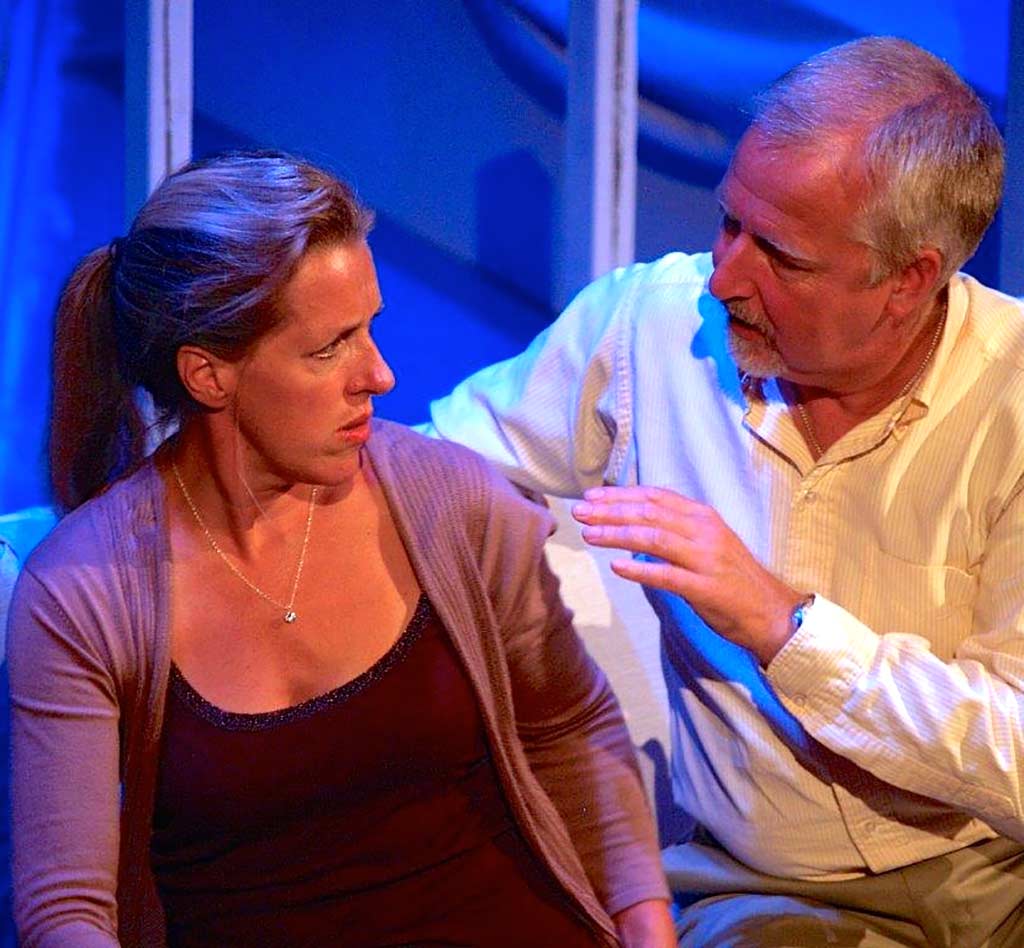 It was around Christmas time and someone got wind that I could play the piano. We were invited to a party so I could play the piano. I was “kind of” mad about that because I didn’t feel like I was being invited to the party for the right reason. But going to the party turned out to be really beneficial to me. I went there and met a person named John Burstein who had been on the children’s program called, Captain Kangaroo. John was Slim Goodbody on Captain Kangaroo. I found out John was our neighbor. This all happened because I went to the party.
It was around Christmas time and someone got wind that I could play the piano. We were invited to a party so I could play the piano. I was “kind of” mad about that because I didn’t feel like I was being invited to the party for the right reason. But going to the party turned out to be really beneficial to me. I went there and met a person named John Burstein who had been on the children’s program called, Captain Kangaroo. John was Slim Goodbody on Captain Kangaroo. I found out John was our neighbor. This all happened because I went to the party.
John was looking for somebody to do voice work. I was just getting my food and going around the table. I turned to him and I said, “Paul will do that.” He looked at me like, “Who’s Paul?” I told him, “He’s my husband. He’s right behind you. He does all the voices.” So Paul got work. We did stuff for public broadcasting. Lots of cartoons. Lots of voice work. (To learn more about John Burstein and Slim Goodbody, click here.)
We all worked together and founded the Everyman Repertory Theatre (Rockport, Maine). The Everyman Repertory Theatre is this incredible pool of people that have moved away from the cities to a quieter life or because they were looking for something different. We all thought we were going to leave our passion behind, but we found each other. When we found each other, that’s when the ball started to roll. We realized we could pool our resources and we could have a professional theater company in Maine. We use 99% Maine based professional actors and production crew as well. (To learn more about Everyman Repertory Theatre, click here.)
2. What does this mission mean to you?
Theater gives me a venue for expression. You get into a deep level with an audience. It is an incredible experience. I have difficulty processing. It’s always been a challenge learning my lines and my blocking and really trying to get into my character. 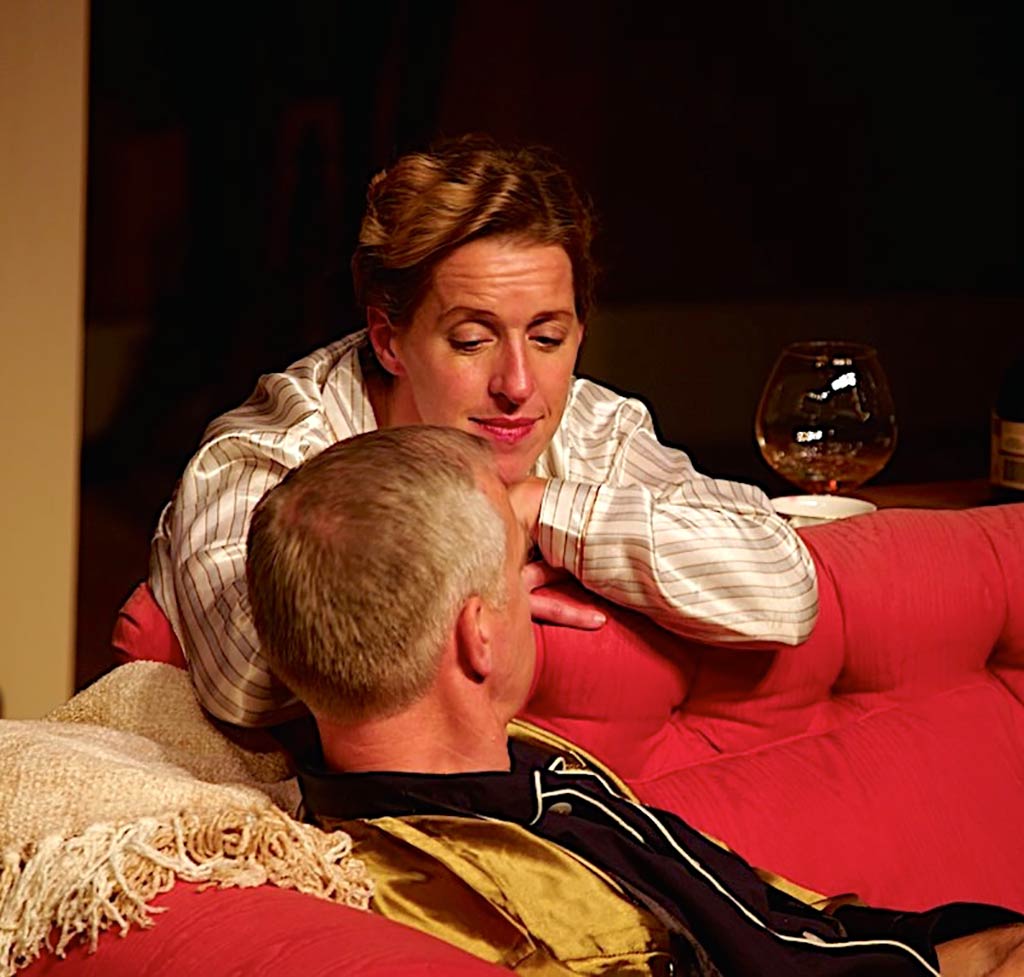 But what I do best is when all the groundwork is done and people say, “You struggled during the rehearsal period, but you soar when you perform.” It’s because then I have the audience. I call them the third character. I feel like I am part of the community when I’m up on that stage – part of my cast community, part of a wider community, part of the arts community in this area, and a part of the community of that evening that we perform.
But what I do best is when all the groundwork is done and people say, “You struggled during the rehearsal period, but you soar when you perform.” It’s because then I have the audience. I call them the third character. I feel like I am part of the community when I’m up on that stage – part of my cast community, part of a wider community, part of the arts community in this area, and a part of the community of that evening that we perform.
If you are doing your job properly on stage, there is a real give and take between the audience and actors during a performance. It doesn’t mean talking directly out to them. It means using your energy and allowing that to feed you while you are up on stage and giving it back to the audience. They are almost directing the play and giving you feedback as to when you need to move on to the next line. One cue is if they are laughing. (To see an abbreviated list of Jennifer’s theater and achievements credits, click here.)
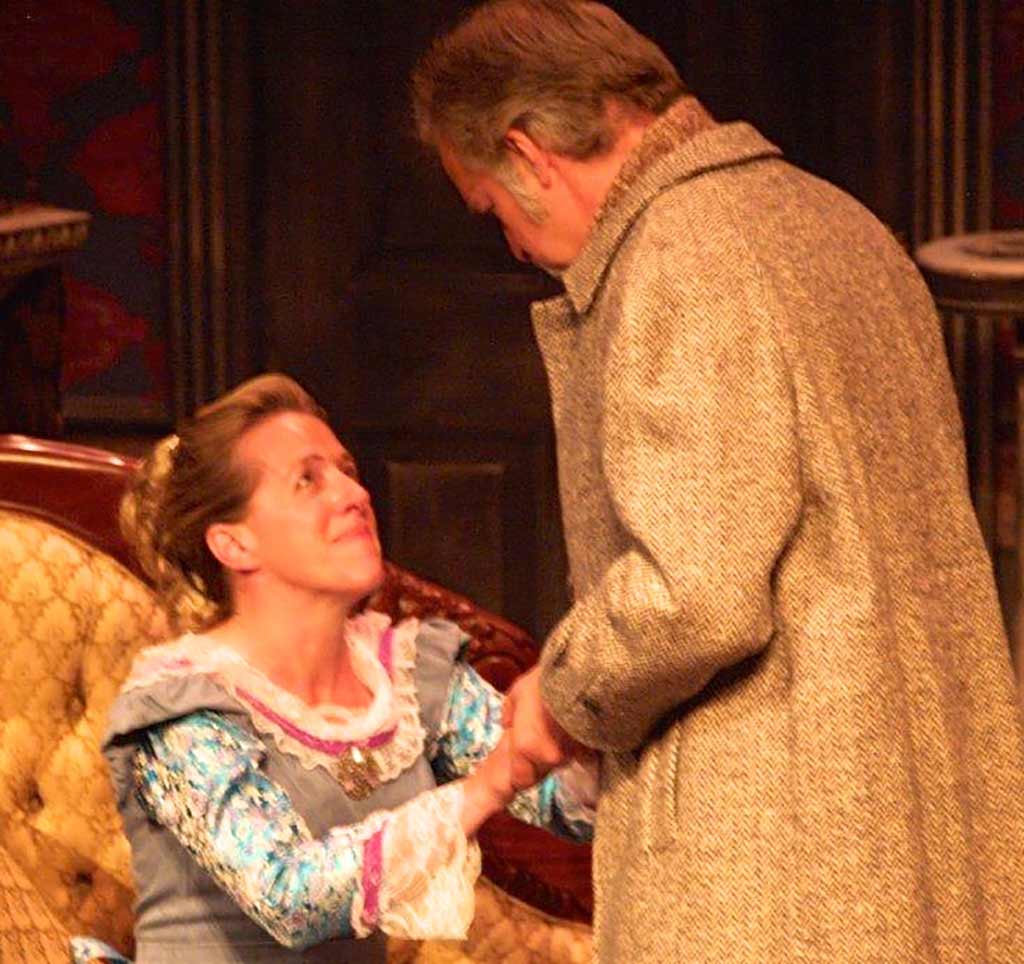 There is a real feeling of energy and sharing. There is a sharing of emotion with an audience. There is a catharsis. We are in New England and there are a lot people who keep things close to their chest. They don’t express their emotions. I think when we have a big audience and a big stage or even in a small theater space, we walk out of there and people will say, “Hi”, to us on the streets. We don’t know who they are. But they still want to know us personally. They will come and talk to us like we just had a heart to heart with them. Then we realize why they are doing that – because they are audience members we don’t recognize, but they were in the audience at some point and developed a relationship with us on some level. It doesn’t always come up in conversation, but we know what happened.
There is a real feeling of energy and sharing. There is a sharing of emotion with an audience. There is a catharsis. We are in New England and there are a lot people who keep things close to their chest. They don’t express their emotions. I think when we have a big audience and a big stage or even in a small theater space, we walk out of there and people will say, “Hi”, to us on the streets. We don’t know who they are. But they still want to know us personally. They will come and talk to us like we just had a heart to heart with them. Then we realize why they are doing that – because they are audience members we don’t recognize, but they were in the audience at some point and developed a relationship with us on some level. It doesn’t always come up in conversation, but we know what happened.
3. What was your best day as producing director, actress, and musician?
The Everyman Repertory Theatre received its nonprofit status in 2008. Our opening show was in November. It was “Private Lives” by Noel Coward. Paul and I were in the show. We had two big donors that gave us a lot of money. We were able to launch even before we wrote our first grant. This was wonderful.
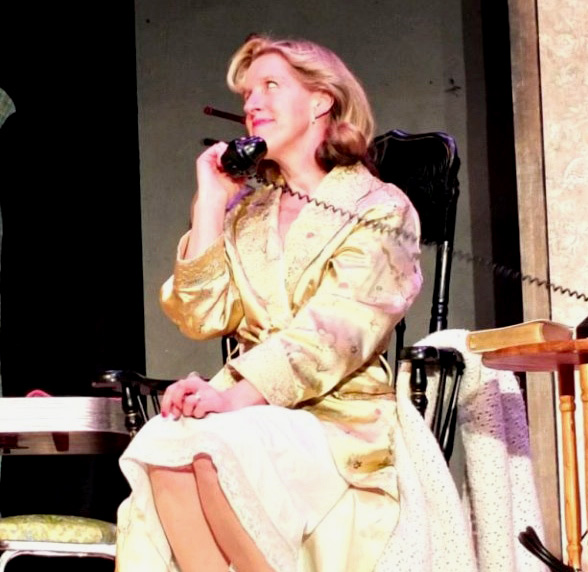 2008 was when the financial crisis hit. We opened a week later. We all got together – cast and crew. We looked online to see what Broadway charged when the Great Depression hit. They were charging between thirty cents and a dollar. So we decided to charge a dollar a ticket on opening night. It was a late announcement. We had missed all the deadlines to let people know. But we decided to get the word out however we could.
2008 was when the financial crisis hit. We opened a week later. We all got together – cast and crew. We looked online to see what Broadway charged when the Great Depression hit. They were charging between thirty cents and a dollar. So we decided to charge a dollar a ticket on opening night. It was a late announcement. We had missed all the deadlines to let people know. But we decided to get the word out however we could.
The performance was in the Rockport Opera House. There are about four hundred seats. Opening night was packed. We came up the stairs and it sounded like four hundred people were having a party. It was such a wonderful night. When we got our audience questionnaires and feedback afterward. A third of the audience had never been to live theater – never been to live theater!
One of the things that came out of this is that we knew that there are both wealthy and poor people in the city and we wanted arts to be accessible by all. We have six area high schools in our area including those on islands nearby, so we have tried to provide free tickets for all high school students. We are trying to pull in that next generation. We have from time to time had theater tickets for cinema prices, so people feel that going to the theater is not going to cost them an arm and a leg. We have kept our prices down so we can continue to include people who may never have seen professional theater. Just because we live in a more rural setting, it doesn’t mean that we don’t crave the same times of creative outlets that the big cities do.
4. What was your worst day as producing director, actress, and musician?
As we were running the theater company and it has been going through different stages, there was a point at which we were in production and we were waiting on grants and they weren’t coming through. 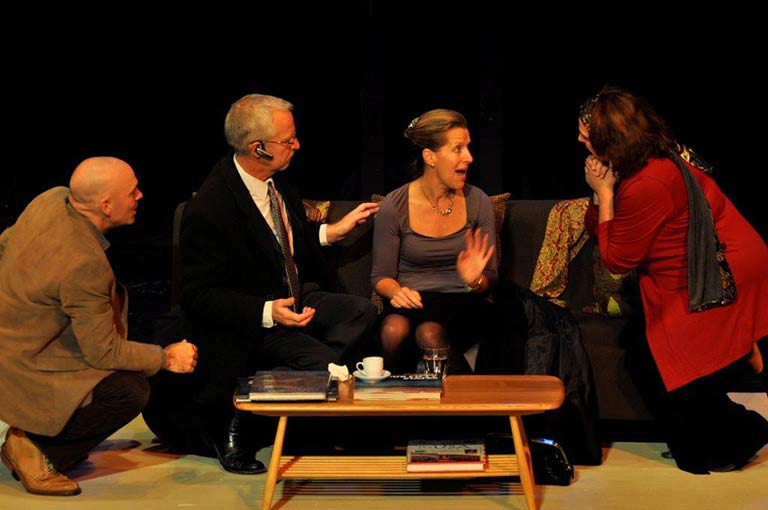 This was a real low point for us. We had already committed to a production. If people don’t step up to the plate, we have a tendency to say, “OK, if we don’t do this by next week, it’s not going to happen.”
This was a real low point for us. We had already committed to a production. If people don’t step up to the plate, we have a tendency to say, “OK, if we don’t do this by next week, it’s not going to happen.”
We have a huge basement. Down in this basement is all our props and costume storage. I walked down there and said, “Are we doing this theater company or not?” Really what I was saying was, “We need to put our house in order. We need to clean this basement and move forward with that mind set that it doesn’t matter if the grant doesn’t come in. If it doesn’t we’re going to apply for another grant. If the money doesn’t come in, we’re going to do a Kickstarter Campaign. Whatever… we have to do the production. This is the goal and this is what we have to do.”
So we sat down in the basement and asked, “Are we doing this theater company?” And somebody said, “Oh, I don’t know.” As the whole discussion roused us, we realized that the theater was beyond us. We just felt like we were the caretakers for the theater company right now. It was our tenure. We had to get it to the next step. If we let it drop, then it would be on our shoulders. We could see that this theater was going to be here in many years time.
We cleaned the basement. We cleaned it from top to bottom. We cleaned our house. We put it in order. Then we moved forward. I said, “That’s how we have to do it. One step at a time.” When things are not going well, we have to continue to move forward.
We didn’t receive one particular grant. When we called them, it was really their mess up. Part of the grant was written in more of an “English” type phrase. They misunderstood it. They discounted our grant. So, when those things happen, that’s when you have to not get stuck. It’s very easy to get stuck – especially with finances the way they are at the moment. But we have to realize that the ball is up in the air and we have to keep it up in the air. At some point we will pass it on, but we will have to pass it on whole. That’s our job.
5. How did you survive your worst day producing director, actress, and musician?
I’m really stubborn. I’m passionate. I know what I want. I’m driven about very specific things. People will laugh at me. They might not think that I am someone who would be business oriented and running a successful theater company. But I think I do because I am driven and I am passionate about it.
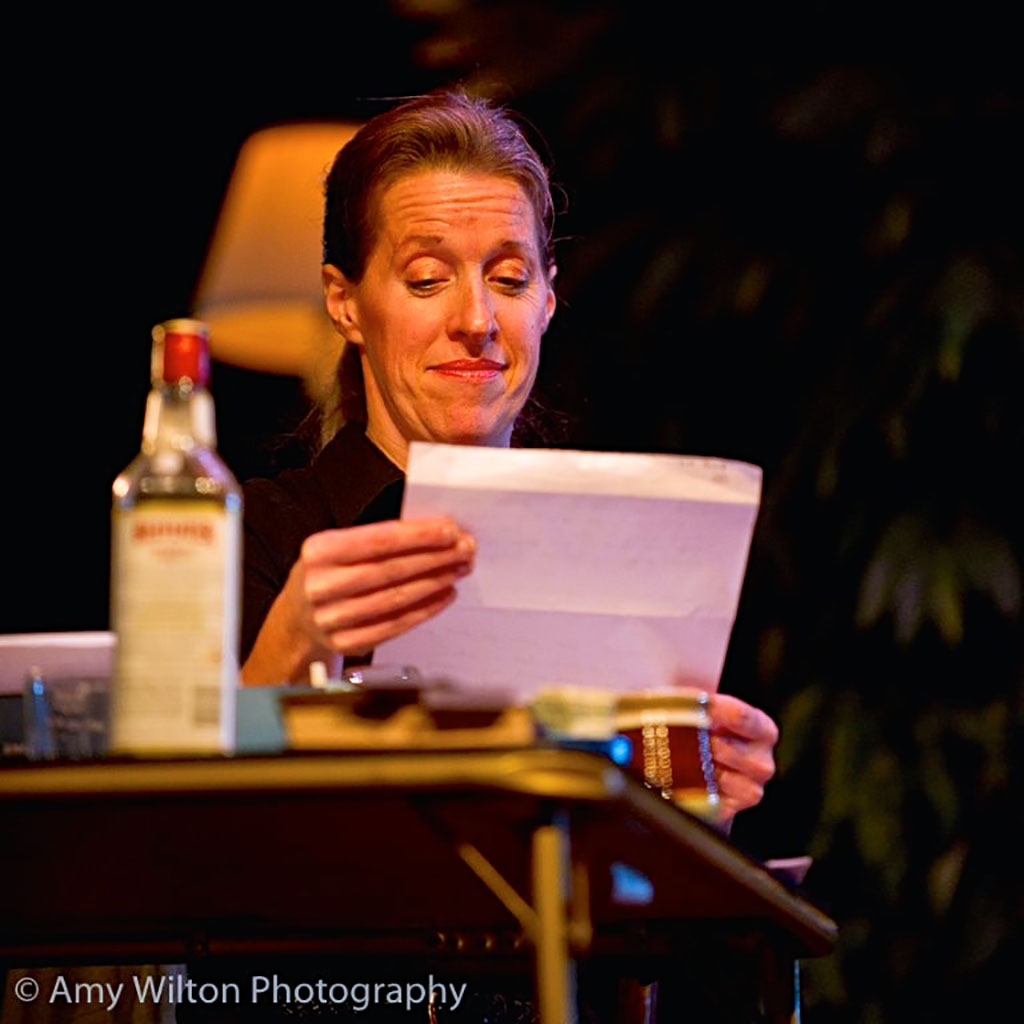 There are so many people out there and I totally understand why the give in, but if you don’t jump off that cliff again, you don’t know if you are going to get hurt. You just need to move forward; otherwise you move back or stand still. I think with life, you just have to move forward into the unknown. I try to do it as responsibility and fiscally responsible as I can, but there have been times during the economic downturn that I’ve realized if I don’t step into the dark and try to move forward not knowing whether we’re going to be successful or not, we’ll never find out. What is the worst thing that can happen? The theater company closes. But we don’t want that. A larger amount of people don’t want that. When you get more people to hold that ball up – that helps as well. If you don’t feel like you are on your own and you feel like you have support from the community. That helps.
There are so many people out there and I totally understand why the give in, but if you don’t jump off that cliff again, you don’t know if you are going to get hurt. You just need to move forward; otherwise you move back or stand still. I think with life, you just have to move forward into the unknown. I try to do it as responsibility and fiscally responsible as I can, but there have been times during the economic downturn that I’ve realized if I don’t step into the dark and try to move forward not knowing whether we’re going to be successful or not, we’ll never find out. What is the worst thing that can happen? The theater company closes. But we don’t want that. A larger amount of people don’t want that. When you get more people to hold that ball up – that helps as well. If you don’t feel like you are on your own and you feel like you have support from the community. That helps.
My husband and I are from two different countries. We spent time in the states before we got married. We moved back to England and lived there. We’ve always tried to find that place that we could both fit in and call home. We found that if you don’t like something, change it. What we tried to do in Maine was create a theater company and find our community within this larger community. It’s been a long process, but we are succeeding.
When you are an individual and you are trying to do something on your own and you are driven, that can be more challenging. I think that you should get as much support as possible. I use support systems as much as I possibly can.
I also need positive feedback all the time. That is what is going to spur me forward to do the level of work that I am doing. I think sometimes people look at us or look at other people and they think, “Oh, they don’t need that positive feedback.” But everybody does. Everybody does – especially when people are going through such difficult times trying to make their businesses work or trying to succeed in college with a learning disability – or whatever.
To have a teacher or two who is going to give you that positive feedback is invaluable. That’s why you have to be verbal about asking for help. You have to be verbal in saying, “I need you to prop me up right now. I need you to push me forward.” You just don’t need to do it on your own. You can ask for help and you can accept that help. I think that is really important.
6. What advice do you have for someone who would like to go into theater?
We have a friend who ran a New York acting class every week. Even amateurs could get additional training. One time before we started class, we all started talking about people’s perceptions of us when we were growing up. 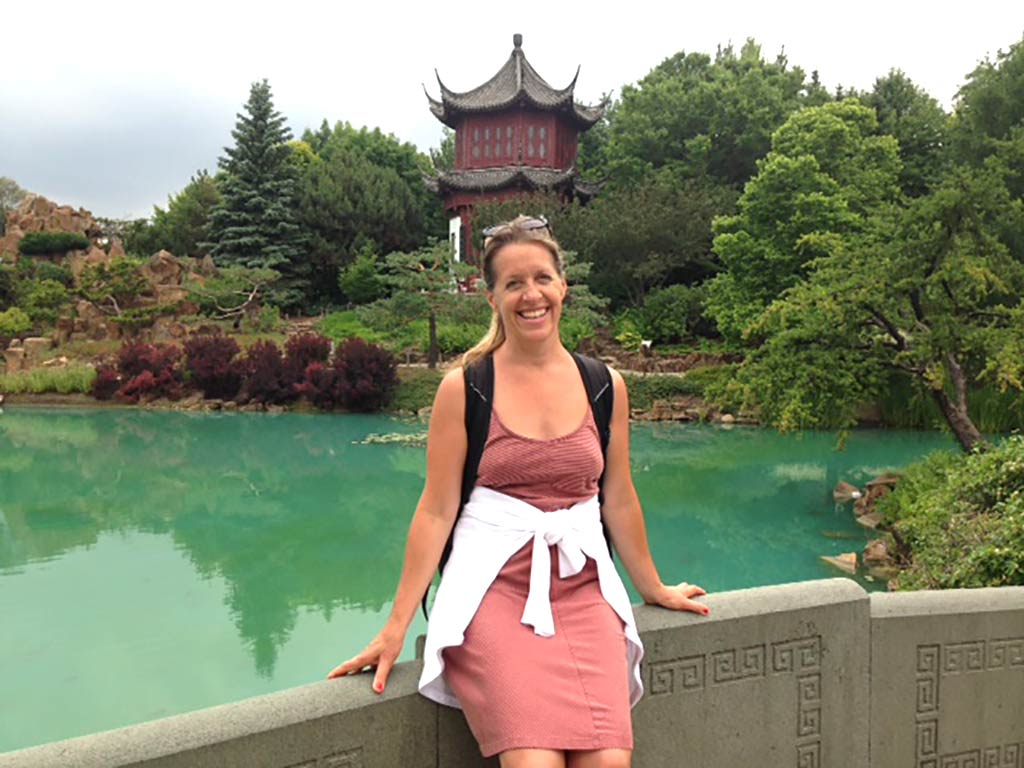 Some people said they were perceived as more subdued, some outspoken, or some way too sensitive. I can be way too sensitive. Most of the time being sensitive was seen as a negative thing. Our acting teacher said about our unique personalities, “That’s your gold. That’s your gold.” We were all saying, “Yeah. Yeah. It is. That’s the thing we liked about ourselves but everybody else thought there was something wrong with us.”
Some people said they were perceived as more subdued, some outspoken, or some way too sensitive. I can be way too sensitive. Most of the time being sensitive was seen as a negative thing. Our acting teacher said about our unique personalities, “That’s your gold. That’s your gold.” We were all saying, “Yeah. Yeah. It is. That’s the thing we liked about ourselves but everybody else thought there was something wrong with us.”
The great thing is that whatever “that” is, whatever your passion is, that is what your gold is. You trust and say, “That is mine. That is a good thing about myself.” For instance, if someone wanted to be an actress, my advice would be not to wait. Don’t try to find a good job. It doesn’t work like that. In order to be good at what you do, you have to do it all the time. Volunteer until they are so sick of seeing your face that they are going to give you a job. This is because you are so consistent. When you get a job there, it might be a local professional theater company person who says, “Oh, wow. We need a stage manager and ours just dropped out. We need one in a week.” Then you are able to go to the next level. You get trained by working in a professional environment. The difficulty is that first step.
One of the things we do as a professional theater company is to work with the high school. Their musical theater program is extremely strong. The technical theater program is extremely strong. A lot of these theater kids go to Boston and to college. We hire Maine based technicians, actors, and actresses from college and we are their first “circle through” and we give them their first professional job. We are looking for them. We know they went to this high school. We know that they went to college. When they need that internship we offer it to them. In that way their parents aren’t saying to them in high school, “Don’t go into theater because you’re never going to make any money. Be a teacher. Do something else.” Even my parents did that to a certain extent, but I’m really glad I stuck to my guns and I took the degree that I’m really passionate about.
There are lots of different things that people need to look at, but my advice would be work, work, work, work, and keep showing up. Keep showing up and be that face that they know at 6:00 pm when they ask for help. You will be there paint brush in hand, script in hand, running errands, doing what needs to be done and with a smile on your face. Even if you are volunteering, you are gaining experience. You also find out if this is what you really want to do.
There is a theater in Monmouth just out side of Augusta, Maine. We went up to see a show. After the show there was a Q & A. My daughter was sitting next to me and I said, “I know her from my past.” I knew her from college. We were in the same theater program. After twenty years of going to England and having lost a lot of connections, we realized that we knew each other from college. I said who I was and she knew who I was right away. We reconnected and we’ve been working to make connections for the theater — such as if we need a stage manager or need to find actors of a particular age range. That is so nice to make those connections in the theater world. If you are working all the time, even if you are volunteering, you are going to make those connections. That’s where you will make the connections – not by writing letters.
If you have some kind of link or theater company in your community that you can circle through so you know there is an initial path for you, find this path of the least resistance. Put your self where people will say, “Oh we have to have so-and-so because they are the hardest worker in the world. Volunteer. Get your experience. If you can afford to not be paid, do it or do it on the side. Then you’ll find that by being in that actual working environment, you will get experience, you’ll find out if this is what you really want to do, and you’ll do it. (Like Everyman Repertory Theatre on Facebook. Click here.)
- « Previous person: Pam Stanfield
- » Next person: Idalia McNulty